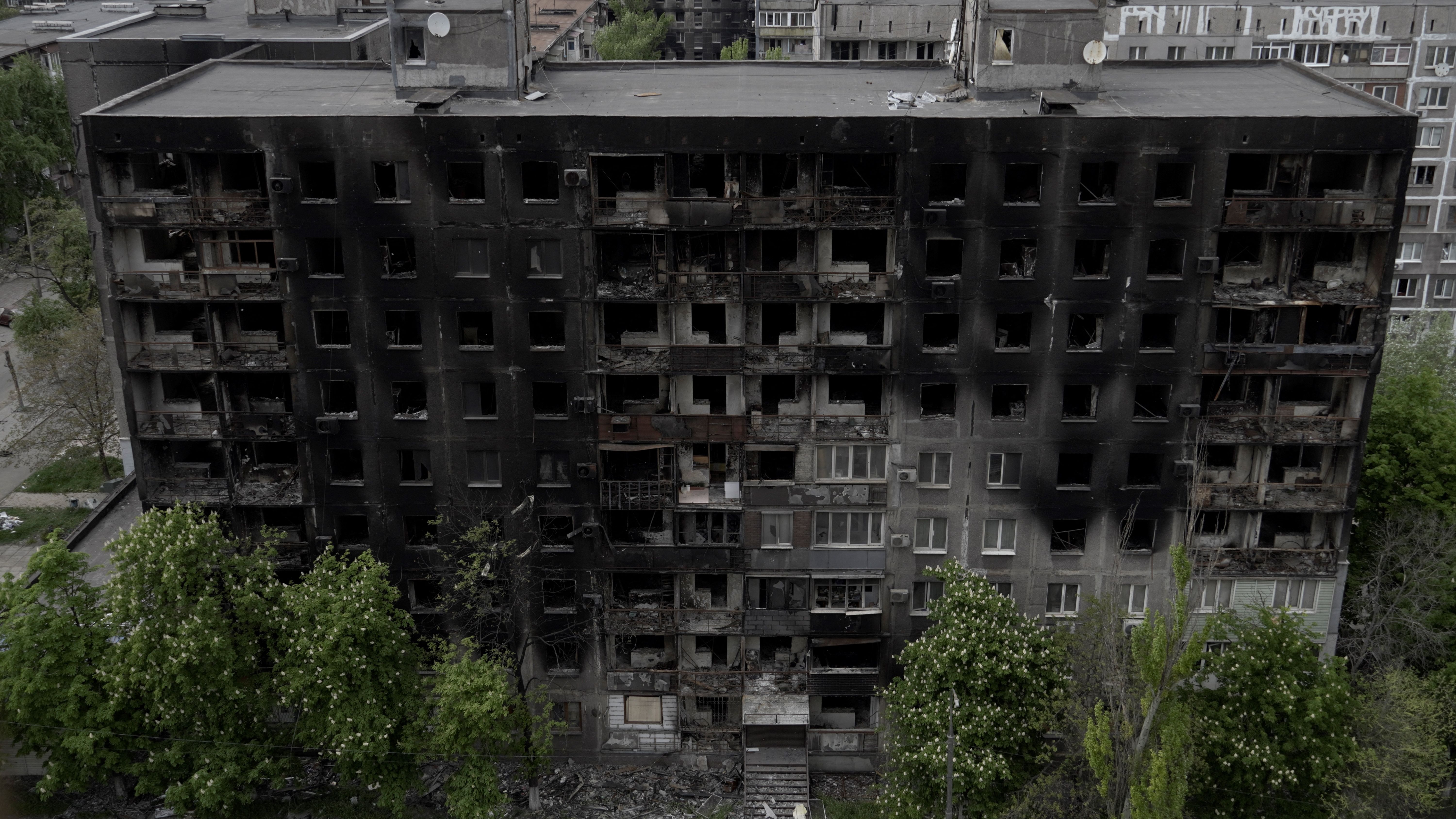ZAPORIZHZHIA – A large white tent in a shopping center parking lot in Zaporizhzhia, welcomes hundreds of evacuees who left everything behind after Russian forces destroyed peace in their hometowns.
Under the marquee, displaced people sit at long communal tables and silently gulp down warm meals prepared by volunteers.
Still in shock from what they saw after Russian troops stormed their cities, some are barely holding back tears and are still visibly shaking. They are given clothes and medicine, as they figure out a plan to get to regions less exposed to attacks.
Further along the tent, a noticeboard is filled with photos of missing relatives and announcements offering to transport evacuees westwards.
While evacuees are mainly arriving from temporarily Russian-occupied cities in Zaporizhzhia Oblast, some also come from Mariupol, Donetsk Oblast, a besieged city in southeastern Ukraine that has experienced the most aggressive Russian bombardment.
Evacuating from Mariupol has remained a gamble for months now, as Russian forces encircled the bombed-out port city on March 2.
Only a handful of Ukrainian evacuation buses have been able to reach Mariupol thus far, leaving civilians with few options: to rely on their personal vehicles or to flee on foot.
But neither option guarantees safe escape.
Some Mariupol survivors, as though by a miracle, have arrived in damaged vehicles with their windows shattered, after having gone through almost 20 Russian-controlled checkpoints.
Mariupol City Council volunteers stationed at the evacuee reception center in Zaporizhzhia told the Kyiv Independent in late April that families fleeing Mariupol usually arrive after having spent days, or even weeks, in the temporarily Russian-occupied city of Berdiansk.
In total, 120,000 Mariupol residents have arrived in Zaporizhzhia, Regional Governor Oleksandr Starukh said during a briefing on May 16. He added that over 6,000 have decided to stay in Zaporizhzhia, while others fled elsewhere.
According to Starukh, the number of evacuees arriving in Zaporizhzhia has decreased in recent weeks and there are currently about 1,000 people a day, with 200-300 coming from Mariupol.
For instance, the governor said 238 Mariupol evacuees have arrived in Zaporizhzhia on May 15.
With no means of communication or access to electricity, heating, and water, Mariupol residents have spent weeks in basements hiding from indiscriminate Russian bombardment.
According to Mariupol Mayor Vadym Boichenko, around 20,000 of the city’s residents may have already been killed by Russia’s war, but the exact number of victims may never be discovered.
Since early April, Russia’s military has been using mobile crematoriums in an attempt to erase the evidence of their war crimes by burning dead bodies, Ukraine’s intelligence said.
Ukrainian officials have also identified mass graves in the outskirts of Mariupol, where Russian forces are disposing of the bodies of thousands of civilians left out on the streets.
Many evacuees are in tears while recounting the brutality of the Russian siege, filled with fear about what may happen to their friends and relatives who are still there.
Mariupol City Council said on May 11 that as many as 170,000 civilians remain trapped in the city.
Leaving father behind
Many of the survivors describe apocalyptic scenes from the once-bustling port city of Mariupol with a pre-war population of 450,000, now reduced to ashes.
“They (Russian occupiers) were just shooting at residential buildings,” Mariupol resident Svitlana Mayorova told the Kyiv Independent. “There were many Russian soldiers and a lot of Russian military equipment around the houses.”
Although the 24-year-old initially fled Mariupol on foot on March 22, she returned in mid-April once she was able to get in touch with her mother, who was hiding in another part of the city.
Once they managed to reunite, the two headed eastwards through the neighboring settlement of Sartana, Donetsk Oblast, bypassing Mariupol to finally get to Yalta. From there, Mayorova and her mother hired a private driver and escaped to Zaporizhzhia with another family through Berdiansk.
Recounting the horrors of watching her hometown turn into a giant graveyard, Mayorova said she was especially frightened when Russian planes were flying overhead.
“A bomb fell on a neighboring house, and the house was just gone,” she said. “About 16 people were killed.”
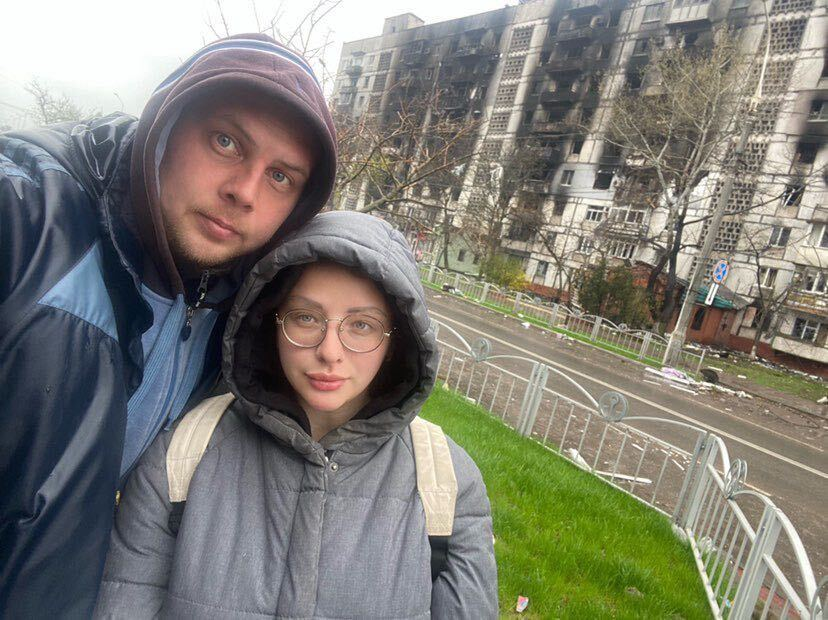
Mayorova survived nearly two months of the siege in a bomb shelter in Mariupol’s hard-hit Livoberezhnyi (Left-bank) district, the neighborhood from which the Russians began forcibly moving a large number of residents into Russian-controlled territory in March.
Russian forces would warn civilians that there would be intense shelling, so “it was either you die at home, or be ‘evacuated’ to Russia,” Mayorova said. As Russia intensified attacks on civilian infrastructure each day, it became a question of life and death. For many, going to Russia was the only escape out of bombarded Mariupol, she said.
By April 28, the Kremlin claimed to have forcibly deported over a million Ukrainians to Russia from its occupied territories in Ukraine.
Luckily, Mayorova had left the district before Russian forces made their way to the bomb shelter where she had been staying. After she finally heard back from her 58-year-old mother, she jumped in a car with her father to pick her up.
Her mother, Olga, had been hiding in the basement of her apartment in the Tsentralnyi (Central) District, where heavy fighting had also been taking place.
Olga told the Kyiv Independent that the Russian tanks had stood just five meters away from her windows and the building would shake every time shots were fired.
“It was really scary, (and the Russian occupiers) were shooting very loudly,” Olga said, recalling the intense fear she had felt.
On their way out of the besieged city, both daughter and mother recall one street covered with dead bodies. Unlike other streets, Russian forces had not yet removed the bodies of dead civilians from the road, the evacuees said.
Mayorova’s father stayed behind because of a disability and it would be difficult for him to evacuate from Mariupol.
Constant fear
Serhiy Kostiantynov, who left Mariupol in late March, said Russian evacuation buses only took civilians to Russia or to Russian-occupied territories back then. He himself hopped onto one of the buses after his apartment was shelled and eventually burned down.
His only car had already been destroyed in the early days of Russia’s war and Kostiantynov was desperate to get out of this “hell,” he said. He said he had to evacuate his wife and their five-month-old baby by any means.
The 35-year-old was terrified to the extent that he could not think straight, especially while battling “constant hunger.” The shelling was so intense that it could have literally killed anybody and the bombing was incessant. It was turning into a real-life Russian roulette.
“You live in constant fear,” he told the Kyiv Independent. “People were just dying. The city is in chaos.”
Up until they left, his family only went to the basement when it was absolutely necessary. He said it was freezing down there, especially for his newborn baby who was always crying.
Not knowing whether he would be able to make it back home alive, Kostiantynov had to leave his home regularly to get water and to cook over an open fire so that his child could have a hot meal. Trips outside were laden with danger; he said many neighbors never came back.
Kostiantynov remembers leaving his apartment one day and passing by a man sitting on a bench, smoking. On his way back, he found the man dead on the exact same spot, with half of his head missing.
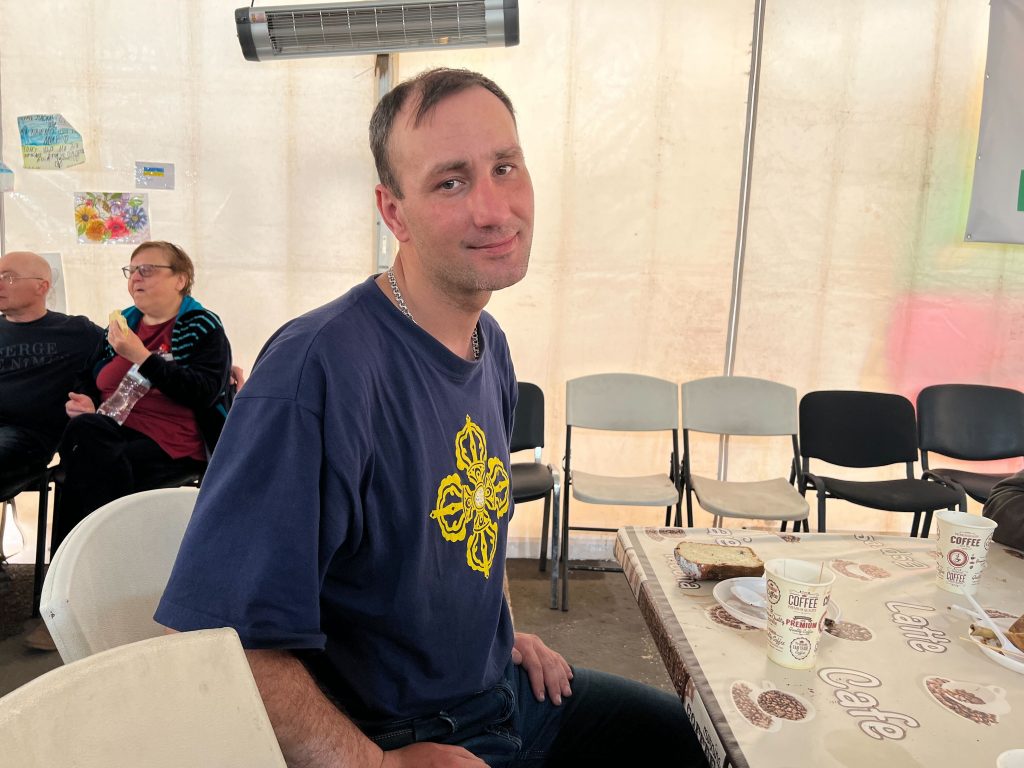
He also remembers watching an entire family, from a small child to its grandparents, being buried in a courtyard, after they were hit suddenly by intense shelling while standing near an open fire.
Many courtyards have been turned into graveyards, Kostiantynov said. He himself has buried about 40 dead bodies.
Once Kostiantynov’s family made the decision to leave Mariupol, a Russian bus took them, as well as many others, to another Russian-occupied settlement nearby.
Evacuees were then forced to pick between the three destinations: Russian-occupied Donetsk or two cities in Russia, Taganrog or Rostov-on-Don. Russian soldiers forbade evacuees to return to Ukrainian-controlled territory, Kostiantynov said.
Luckily, he was able to strike a secret deal with a local in Nikolske, Donetsk Oblast, who agreed to help the family get to Zaporizhzhia Oblast.
Almost all others on the buses were taken to Russia, many of them against their will.
Kostiantynov’s parents are still in Mariupol and he has yet to hear back from them.
Born in siege
Mariupol resident Anna Vilkova, 26, was about to give birth to her second child when Russia unleashed its full-scale invasion of Ukraine on Feb. 24. Her family decided to stay in Mariupol, hoping that the hostilities would eventually die down.
On March 1, her father rushed her to a local maternity hospital and she gave birth as soon as they arrived. It was the last day that the hospital still had access to electricity, so doctors were able to perform an operation to deliver her child.
Her father and husband remained in their apartments until both of their homes were destroyed in mid-March. Vilkova’s two-year-old son Illia stayed with her parents. She said that she was especially frightened because she would not have been able to run if the hospital was attacked due to her stitches.
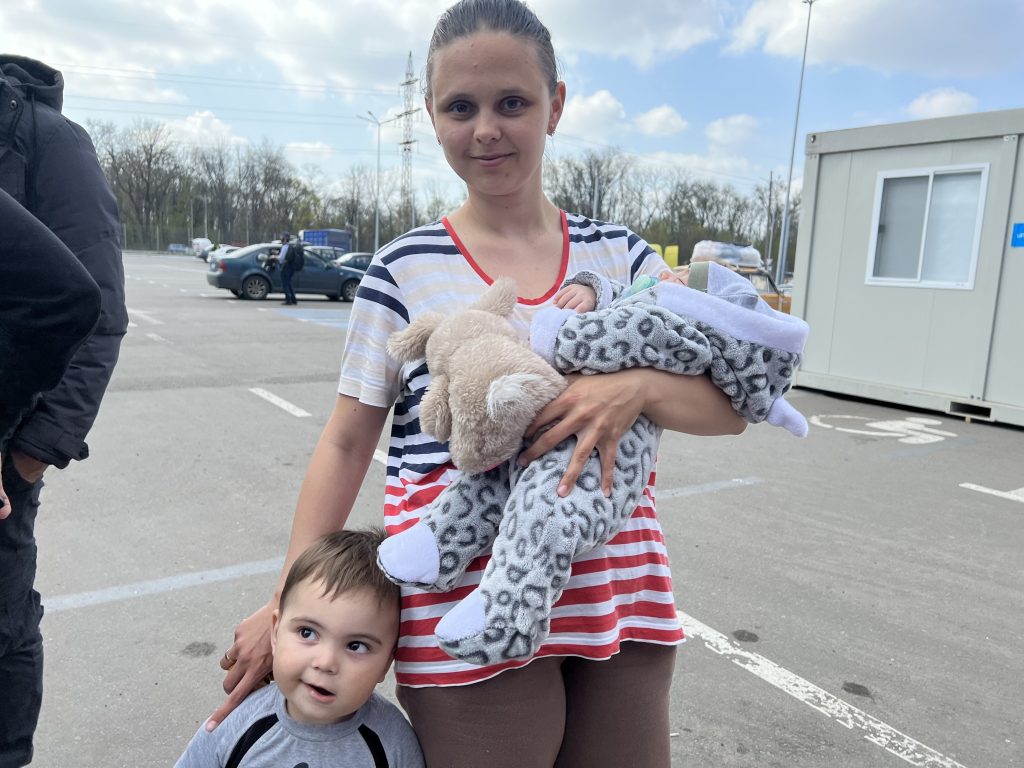
Her 57-year-old father also recounted the terror of the weeks prior to when they were all able to flee their hometown.
He saw dead bodies on the streets everywhere he went, one of them his acquaintance. He said a bomb had fallen on his acquantaince, decapitating him and leaving the rest of his body strewn across the street.
Vilkova’s father said he would constantly hear warplanes flying outside and that it was like “suicide” to go anywhere. He buried many people that he knew.
“God knows how many people were killed near a bonfire when an air bomb fell on them,” he said.
“It’s just corpses lying outside, no one can keep up to bury them,” Vilkova told the Kyiv Independent.
The rest of her family soon joined her in the basement of the hospital and stayed there for a week. While the basement was not very deep, there were many families hiding inside.
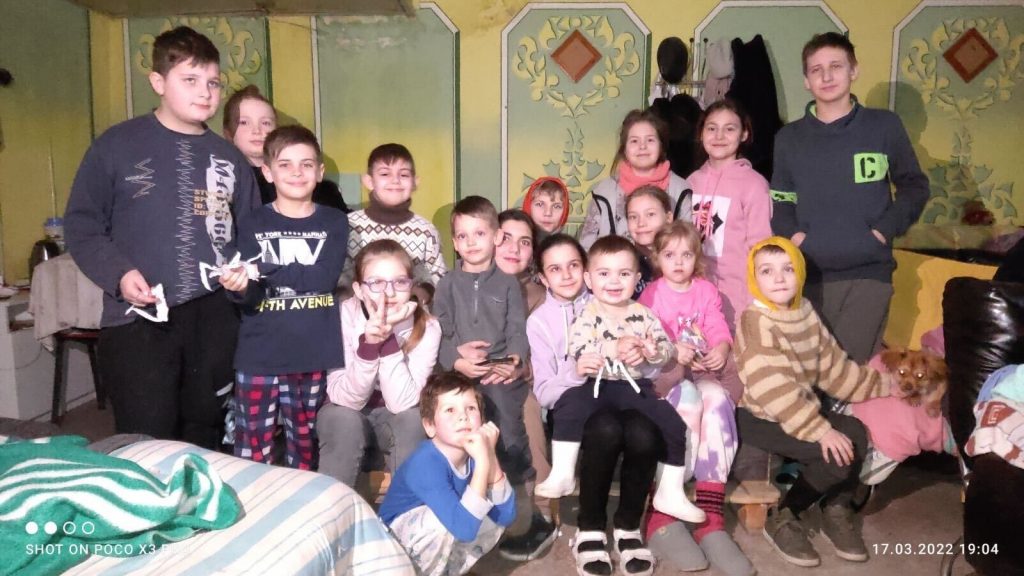
Even though everyone was terrified, people supported each other and even sang Ukrainian songs once in a while, Vilkova said.
Thankfully, Vilkova’s husband had just bought a car in February and it still had fuel, so they eventually made their way out of the city. The routes going westwards were mined, so their only option was to head eastwards toward Russian-occupied territory, her husband said.
Weeks later, they arrived in Zaporizhzhia just before their newborn baby Ivan turned two months old.
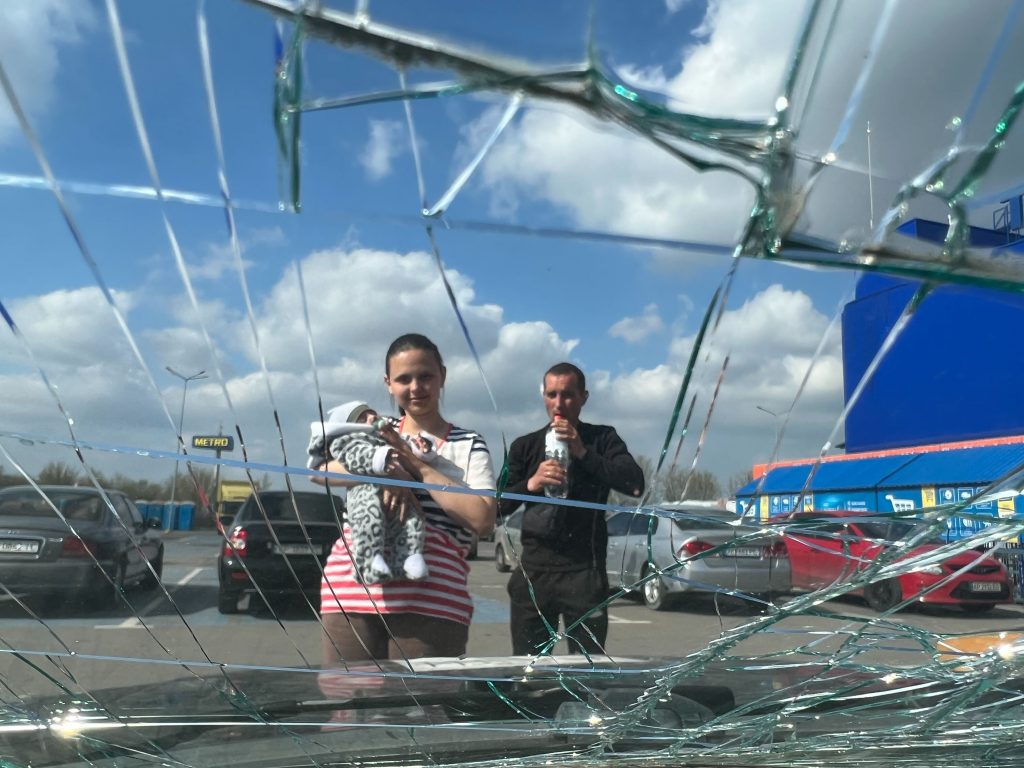
Only memory left
At present, after two-and-a-half months of heavy fighting, the city of Mariupol is effectively under Russian control.
The remaining defenders of Mariupol are holding out against concerted Russian attacks on the Azovstal steel plant, Ukraine’s last stronghold in the city.
There was not a day that smoke would not billow into the air, 14-year-old Mariupol escapee Alina Ishchenko told the Kyiv Independent.
Even before her family fled their hometown in late March, they remember seeing Russian forces opening fire at Azovstal.
A month after their escape, Ishchenko still holds on to a picture of her dead friend Veronika’s body and wonders whether she was buried. Russian forces dropped a bomb on her classmate’s house in mid-March and wiped out nearly her entire family.
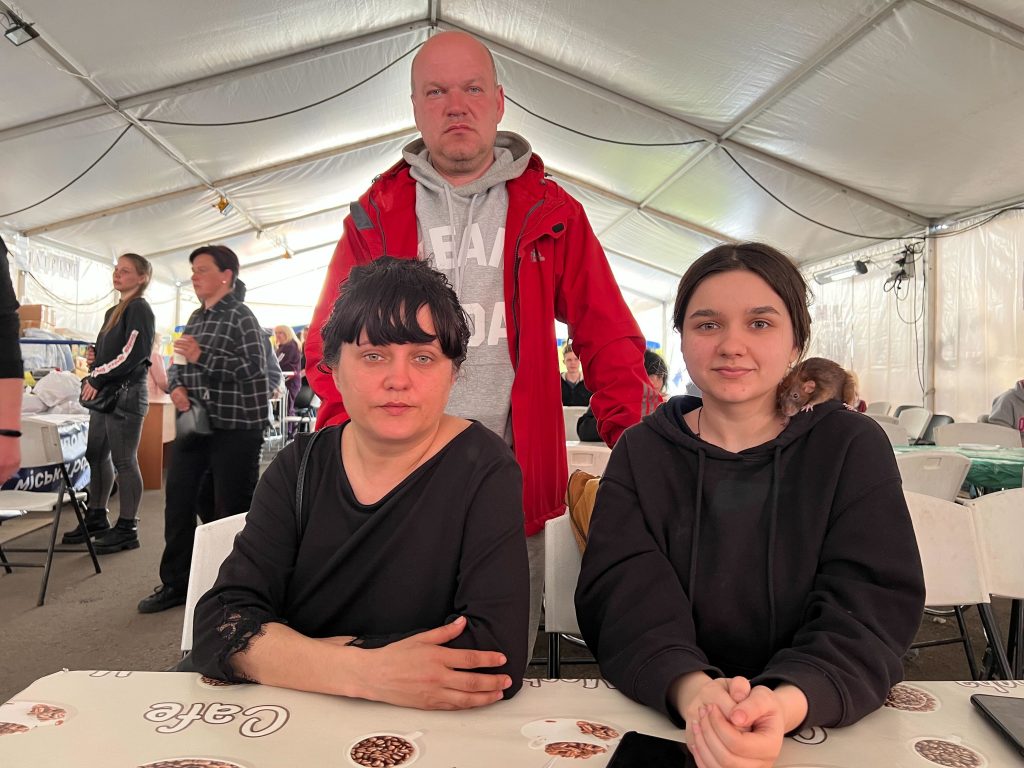
Ishchenko’s house was also destroyed due to the attack, so she was forced to live in a nearby basement. There was not enough space underground for adults, so Ishchenko’s parents lived outside, behind the walls of a destroyed house, hoping that another bomb would not fall on them.
“For the first days, we would yell ‘aviation, everyone hide,’” Ishchenko’s mother said. “But then we understood that if it (a bomb) falls, it falls. And if it falls, there is no point to hide.”
Ishchenko was told by a friend that bodies still lay on the ruins of their destroyed house. Pointing to the picture that her mother took before they left Mariupol of the dead bodies in the ruins, she said, “this is how the entire city looks.”
The smell of dead bodies is something still fresh in Ishchenko’s mind.
“All that’s left of Mariupol is its name and the people who remember and love the city the way it once used to be,” she said, holding back tears.




